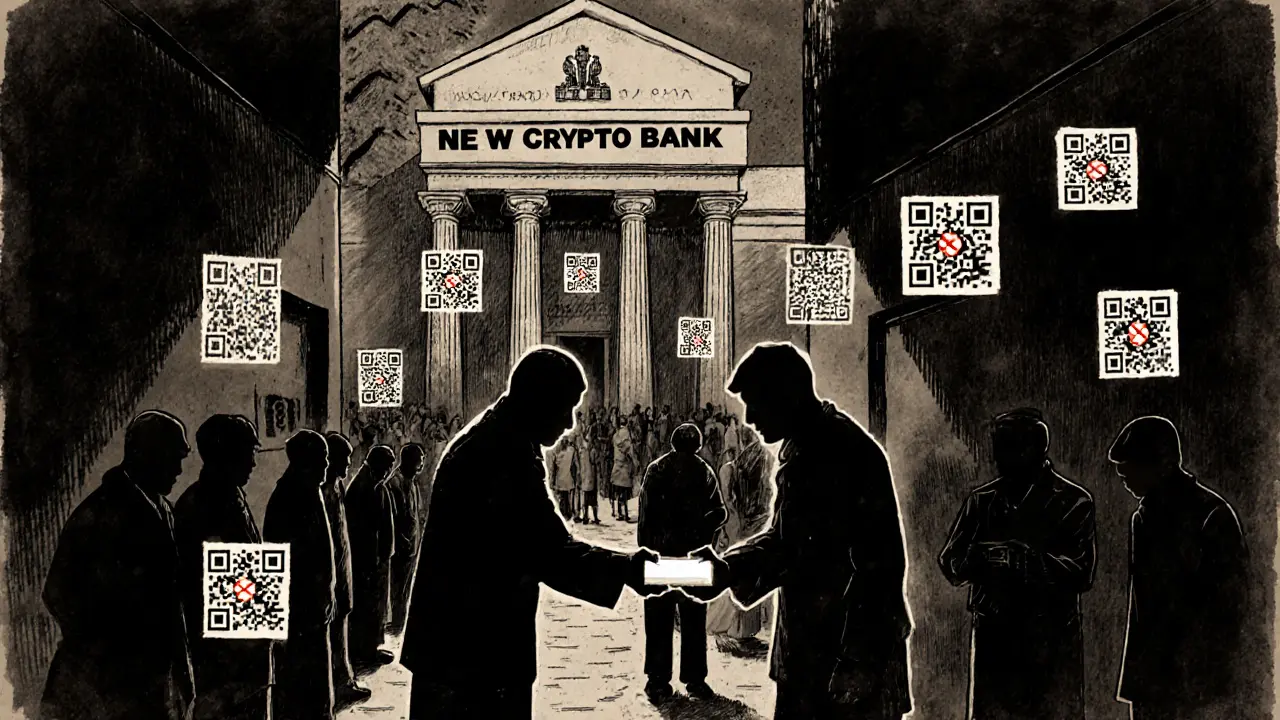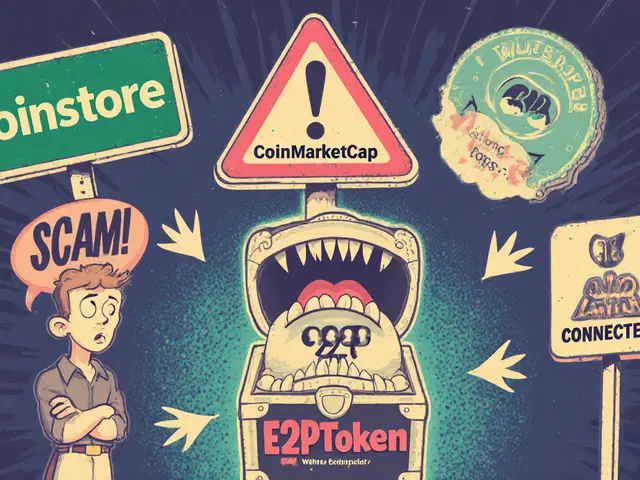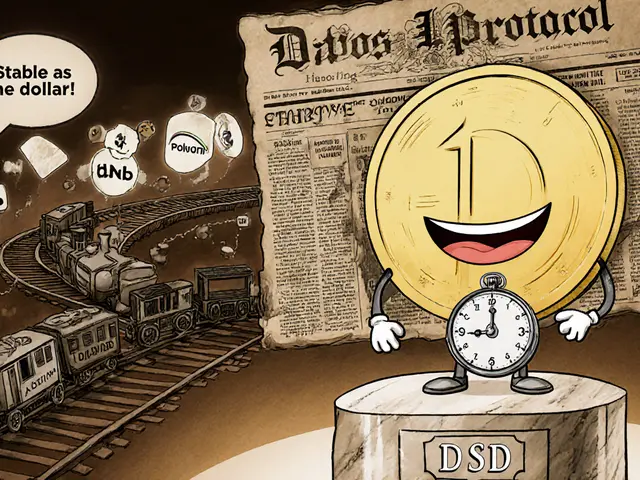
Pakistan Crypto Legality Checker
Is your crypto activity legal in Pakistan?
Check if your specific crypto use case complies with Pakistan's Virtual Assets Bill 2025 regulations.
For years, owning Bitcoin or Ethereum in Pakistan was a legal gray zone. Banks blocked transactions. Exchanges shut down. People used peer-to-peer apps and hidden wallets just to hold crypto. Then, in 2025, everything flipped. The State Bank of Pakistan didn’t just soften its stance-it completely reversed it. On September 3, 2025, Pakistan legalized cryptocurrency. Not with fanfare, but with a tightly written law: the Virtual Assets Bill 2025.
From Ban to Blueprint: How the Shift Happened
In 2018, the State Bank of Pakistan told banks and financial institutions: no crypto. No trading. No deposits. No withdrawals. It wasn’t a law, just an advisory. But it worked. People stopped using crypto exchanges. Wallets went quiet. The market didn’t disappear-it went underground. By 2024, an estimated $21 billion in cryptocurrency was circulating in Pakistan, mostly through informal channels. No taxes collected. No oversight. No protection. The turning point came in May 2025. The government approved the Pakistan Digital Assets Authority (PDAA), a technical body made up of finance ministry reps, the State Bank, the Securities and Exchange Commission, and IT experts. Their job? Build a framework that could bring crypto out of the shadows without letting it run wild. By June, they had a draft. By July 8, President Asif Ali Zardari signed it into law as an ordinance. The Virtual Assets Bill 2025 created the Pakistan Virtual Asset Regulatory Authority (PVARA)-a new, independent agency with real power. Its mission: license, monitor, and enforce rules for anyone handling crypto in Pakistan.What’s Legal Now? The Rules That Actually Matter
Let’s cut through the noise. Yes, crypto is legal in Pakistan. But that doesn’t mean you can buy coffee with Bitcoin. Here’s what you can do under the new rules:- Hold Bitcoin, Ethereum, or any other cryptocurrency in your wallet
- Transfer crypto between personal wallets (P2P)
- Use licensed exchanges to buy and sell crypto (only for investment, not spending)
- Receive crypto as remittances from overseas workers (a key focus)
- Pay for goods or services with crypto at stores, restaurants, or online shops
- Trade altcoins on unlicensed platforms
- Use crypto for speculative day trading or margin trading
- Operate a crypto exchange without a PVARA license
The Digital Pakistani Rupee: State Control, Not Decentralization
While crypto got legal status, Pakistan didn’t stop there. On July 9, 2025, Central Bank Governor Jameel Ahmad announced the plan to launch the Digital Pakistani Rupee (Digital PKR)-a central bank digital currency (CBDC). This isn’t Bitcoin. It’s not Ethereum. It’s not even a blockchain-based token you can hold. It’s digital cash issued and controlled entirely by the State Bank of Pakistan. You’ll be able to send it to someone else via a mobile app, but only if your bank supports it. There’s no anonymity. No decentralization. No smart contracts. The goal? Replace cash. Improve remittance flows. Track money. Prevent fraud. And, most importantly, keep control. Experts call this a “China-style” model: allow private crypto to exist, but only as long as it doesn’t challenge the state’s monopoly on money. The Digital PKR is the real future of Pakistan’s digital finance-not Bitcoin.
Who’s Running This Show? PVARA and the New Regulators
PVARA isn’t just a name on paper. It’s a full regulatory body with hiring power, audit rights, and enforcement teeth. By October 2025, PVARA had already:- Published licensing requirements for Virtual Asset Service Providers (VASPs)
- Started recruiting staff with blockchain and AML expertise
- Set up a reporting system for crypto transactions over PKR 50,000
- Required all licensed exchanges to integrate with Pakistan’s national ID system (CNIC)
Why This Matters for Pakistan’s Economy
Pakistan gets over $30 billion in remittances every year-mostly from workers in the Gulf, UK, and Malaysia. Sending money through Western Union or MoneyGram costs 5-10%. With crypto, it can cost less than 1%. The government sees this as a chance to capture that money. By legalizing crypto transfers, they can track inflows, collect taxes, and reduce the black market. That’s why remittances are the only commercial use case officially allowed. The $21 billion crypto market? It’s now visible. That means tax revenue. That means economic data. That means the government finally knows how much money is moving. But here’s the catch: if you’re a young entrepreneur in Lahore who wants to build a crypto-based payment app? You’re out of luck. The law doesn’t allow it. If you’re a freelancer in Karachi trying to get paid in USDT? You can receive it, but you can’t spend it locally. That’s the paradox.How Pakistan Compares to Other Countries
Pakistan’s approach is unlike anywhere else.- El Salvador: Bitcoin is legal tender. You can pay taxes with it.
- United States: Crypto is taxed, regulated, but freely traded. You can buy, sell, stake, and use it for payments.
- UAE: Crypto hubs in Dubai. Full licensing for exchanges. No ban on retail use.
- India: Heavy taxes (30% on gains), but trading is legal and widespread.
- China: Crypto trading banned. Only CBDC allowed.
- Pakistan: Crypto allowed to hold and transfer. No retail use. CBDC is the future.

What Users Are Saying
On Reddit and Facebook groups, reactions are split. Some say: “Finally, we’re not criminals for holding Bitcoin.” Others say: “They legalized it just to tax it. We can’t even buy a phone with crypto.” One user in Faisalabad wrote: “I’ve been holding ETH since 2020. Now I can sell it legally. But if I want to use the money to pay my electric bill? I still have to convert it to rupees. What’s the point?” The frustration is real. The legalization feels like a half-step. It gives people safety, but not freedom.What’s Next? The Road to 2026
PVARA’s license applications are still being reviewed. The Digital PKR pilot is set to launch in early 2026, starting with 50,000 users in Islamabad and Karachi. The government says it’s open to expanding crypto use-“as the system matures.” But so far, there’s no timeline. No roadmap. No signal that retail payments will ever be allowed. What’s clear: Pakistan’s crypto future isn’t about decentralization. It’s about digital control. The state isn’t giving up power. It’s just upgrading its tools. For now, crypto in Pakistan is legal-but only if it stays quiet. Only if it doesn’t challenge the system. Only if it serves the state’s agenda. If you’re holding crypto here, you’re no longer breaking the law. But you’re still playing by someone else’s rules.What This Means for You
If you’re in Pakistan and own crypto:- You’re safe to hold it. No more fear of bank freezes.
- Use only PVARA-licensed exchanges. Avoid unregulated platforms.
- Keep records of all transactions. Tax reporting is coming.
- Don’t try to use crypto for payments. You’ll get blocked.
- Watch for the Digital PKR rollout-it’s where the real action is.
- Apply for a PVARA license early. The window is open.
- Focus on remittances or compliance tech. Those are the only approved paths.
- Don’t build payment apps. They’ll be shut down.
Is cryptocurrency legal in Pakistan in 2025?
Yes, cryptocurrency is legal in Pakistan as of September 3, 2025, under the Virtual Assets Bill 2025. You can legally hold, buy, sell, and transfer crypto through licensed exchanges. However, it cannot be used for payments at stores or for open trading. The State Bank of Pakistan still prohibits banks from facilitating crypto transactions directly.
What is PVARA and why does it matter?
PVARA stands for Pakistan Virtual Asset Regulatory Authority. It’s the new government agency created in 2025 to license and oversee all crypto-related businesses in Pakistan. Any exchange, wallet provider, or crypto ATM must get a PVARA license to operate. Without it, they’re illegal. PVARA also enforces anti-money laundering rules and tracks large transactions.
Can I use Bitcoin to pay for goods in Pakistan?
No. The Virtual Assets Bill 2025 explicitly prohibits using Bitcoin, Ethereum, or any other cryptocurrency for retail payments. You cannot pay for groceries, electricity, or online services with crypto. The only permitted commercial use is for remittances received from abroad, which must be converted to Pakistani rupees before spending.
What is the Digital Pakistani Rupee?
The Digital Pakistani Rupee (Digital PKR) is Pakistan’s central bank digital currency (CBDC), planned for pilot launch in early 2026. Unlike Bitcoin or Ethereum, it is fully controlled by the State Bank of Pakistan. It will function like digital cash-transferable via mobile apps-but with no anonymity, no decentralization, and no blockchain-based features. It’s designed to replace physical cash and track financial activity, not to enable decentralized finance.
Are crypto taxes enforced in Pakistan?
Tax rules for crypto are still being finalized, but the government has signaled that capital gains from crypto trading will be taxed. PVARA requires all licensed exchanges to report user transactions over PKR 50,000. The Federal Board of Revenue is expected to release formal tax guidelines by mid-2026. Until then, keeping detailed records of all buys, sells, and transfers is strongly advised.
How does Pakistan’s crypto law compare to India’s?
India allows crypto trading and has a 30% tax on gains, but doesn’t ban usage. Pakistan bans retail payments and restricts trading to licensed exchanges only. India treats crypto as an asset class. Pakistan treats it as a controlled financial instrument. India’s market is open and active. Pakistan’s is restricted and monitored. Both tax crypto, but only Pakistan has created a state-controlled digital currency to replace it.
Can I start a crypto exchange in Pakistan?
Yes, but only if you get a license from PVARA. The application process requires proof of technical infrastructure, AML compliance systems, local business registration, and background checks for owners. You must also integrate with Pakistan’s national ID system (CNIC) and report all transactions over PKR 50,000. The first licenses were issued in October 2025, and demand is high. Unlicensed exchanges are illegal and subject to fines or shutdown.





Comments (18)
Becky Shea Cafouros
So they legalized crypto just so they can tax it later. Classic move. I mean, if you’re gonna let people hold it, why not let them spend it? Seems like they just want to monitor everything without giving anything back.
Anthony Forsythe
Let me tell you something - this isn’t regulation. This is digital feudalism. The state didn’t ‘legalize’ crypto. It absorbed it. Like a parasite that finally found a host it could control. The Digital PKR? That’s not progress. That’s the endgame. You think you’re free because you can hold Bitcoin? No. You’re just a data point in a ledger that answers to a bureaucrat in Islamabad. The moment you try to use it outside their script - poof. You’re back in the shadows. They didn’t open a door. They installed a turnstile. And you’re the one turning.
Kandice Dondona
YASSS 🙌 finally some clarity for Pakistani crypto holders! I know it’s not perfect - no retail payments yet, ugh - but hey, at least you’re not hiding your keys under a mattress anymore 💪✨ This is a HUGE step, and honestly? Remittances being allowed? That’s life-changing for so many families. Keep pushing, keep learning, and soon the system will evolve. You got this!! 💜
Drew Monrad
Oh wow. So now the state gets to watch your wallet while you’re forced to use their digital cash? Brilliant. Just brilliant. They didn’t legalize crypto - they made it a prison with Wi-Fi. And the Digital PKR? That’s not currency. That’s a surveillance tool with a bank logo. You think this is about innovation? No. It’s about control. And if you’re okay with that, you’re not a crypto believer - you’re a bureaucrat in training.
Cody Leach
This is actually a really thoughtful approach. Not perfect, but pragmatic. The remittance angle alone makes sense - cutting fees from 10% to 1% is huge. And licensing exchanges? Long overdue. I’d rather see controlled growth than chaos. The Digital PKR might be the real win here, honestly.
Rachel Anderson
Let’s be honest - Pakistan didn’t legalize crypto. It performed a necropsy on it and then mounted the corpse on a wall as a warning to other nations. The Virtual Assets Bill isn’t law. It’s a funeral dirge for decentralization. And the Digital PKR? That’s not a currency - it’s a state-sponsored mood ring that changes color when you try to spend outside the approved channels. How quaint.
Hamish Britton
Been holding BTC since 2021 here in Glasgow. Saw this and thought - wow, Pakistan’s actually doing something smart. Not flashy, not sexy, but… functional. The remittance thing? That’s the real win. And licensing? Good. Unregulated exchanges are a nightmare. Hope they keep it this level-headed.
Katherine Wagner
Legal but not usable? So what? I can hold it but not spend it? That’s like having a Ferrari with no wheels. And the Digital PKR? Oh please. It’s not digital currency - it’s digital slavery. No anonymity? No blockchain? What even is this? They call it innovation. I call it a prison with a mobile app.
ratheesh chandran
yo this is so deep man like i been holding eth since 2019 and now i can sell it but not buy pizza with it?? like why?? why make it legal if you still make it useless?? its like giving someone a key to a house but locking the door after they open it?? pvaras is just a new police force for crypto?? and digital pkr?? that’s just the government’s version of a spy camera on your phone??
Hannah Kleyn
I’m just sitting here wondering how many people are quietly holding crypto right now and not saying anything because they’re waiting to see if this actually sticks. The fact that they’re requiring CNIC integration tells me they’re not just collecting taxes - they’re building a profile. I’m not against regulation, but this feels like a slow-motion takeover. The Digital PKR is the real story here. Crypto’s just the Trojan horse.
gary buena
So you can own crypto but not use it? That’s like being told you can own a car but can’t drive it. And the Digital PKR? That’s not innovation - that’s just the government trying to win the internet version of monopoly. Also, why is everyone acting like this is some kind of win? It’s not freedom. It’s permission.
Vanshika Bahiya
For anyone new to crypto in Pakistan - start with a PVARA-licensed exchange like Binance PK or Coinswitch. Don’t touch unregulated platforms. Keep screenshots of every transaction. And yes, tax reporting is coming - start tracking now. Also, if you’re receiving remittances via crypto, convert immediately to PKR via the app. It’s safe, fast, and under 1% fee. This is the best path forward right now. Stay smart, not reckless.
Albert Melkonian
While the regulatory framework presented in the Virtual Assets Bill 2025 may appear restrictive on the surface, it is, in fact, a remarkably prudent and strategically calibrated response to a volatile and unregulated asset class. The prioritization of remittance corridors, the establishment of a centralized regulatory authority with enforcement capabilities, and the concurrent development of a sovereign digital currency represent a tripartite model of financial modernization that balances innovation with systemic stability. The Digital Pakistani Rupee, far from being antithetical to cryptocurrency, serves as the logical evolutionary endpoint of a nation seeking monetary sovereignty in the digital age. This is not suppression - it is stewardship.
Kelly McSwiggan
Oh look. Another country that thinks ‘legalizing’ crypto means ‘taxing it into oblivion while building a digital surveillance state.’ The PVARA license requirements? A compliance nightmare. The CNIC integration? A privacy nightmare. The Digital PKR? A dystopian dream come true. Congratulations, Pakistan. You’ve turned Bitcoin into a government-approved tax form with blockchain aesthetics.
Byron Kelleher
Look, I get the frustration - you want to buy coffee with crypto. But let’s be real: most people in Pakistan don’t even have bank accounts. This law gives them a way to get money home safely, cheaply, and legally. That’s huge. The Digital PKR might be the real hero here - it could finally bring banking to the unbanked. Maybe the restrictions are temporary. Maybe this is step one. Let’s not throw the baby out with the bathwater.
Cherbey Gift
They didn’t legalize crypto - they gave it a leash and a collar. And now they’re walking it around like a show dog. The Digital PKR? That’s not money - that’s a digital leash with a GPS tracker. You think you’re free because you can hold Bitcoin? Nah. You’re just the dog that’s allowed to sit on the porch - but if you bark too loud, they’ll put you in the shed. And the government? They’re the ones holding the treat.
Mandy Hunt
They’re using crypto to track you. The Digital PKR is the real weapon. This is all part of the Great Reset. They want to control every transaction. They’re afraid of real money. They’re scared of decentralization. This isn’t regulation - it’s the beginning of the end. Your wallet is being watched. Your movements are being logged. You’re not safe. You’re being prepared.
anthony silva
So you can hold crypto but not spend it? Cool. So what’s the point?